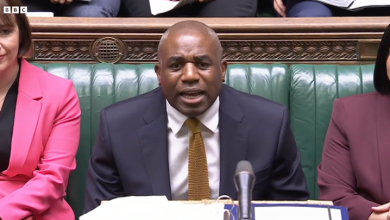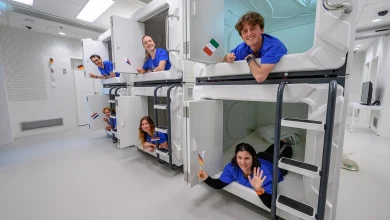London Philharmonic and Royal Academy defend ties with tobacco company sponsor

The London Philharmonic Orchestra (LPO) has called its continued partnership with an international tobacco giant “critical” to its work.
A spokesperson for the organisation, founded in 1932, told Arts Professional that without Japan Tobacco International (JTI), it would be unable to fund schemes like OrchLab, which engages disabled adults through music.
LPO’s defence of its 17-year-long relationship with JTI follows revelations that the British Museum has dropped the tobacco products manufacturer, known for cigarette brands including Camel and Benson and Hedges.
According to the Times, British Museum’s decision to axe ties with JTI after some 15 years follows conversations between the Department of Health and Social Care and the Department for Culture, Media and Sport (DCMS).
The paper reports that DCMS was warned that the British Museum, which is one of 15 arts organisations directly supported by the department, could put the government at odds with the World Health Organisation’s Framework Convention on Tobacco Control (FCTC) by accepting JTI’s sponsorship.
However, LPO is not a DCMS-funded cultural organisation. It does receive funding from Arts Council England (ACE), making up 15% of its income according to its most recent accounts.
Those accounts, made up to 31 August 2024, characterises LPO’s ACE support as “one of the lowest” amounts of public subsidy “of any European symphony orchestra”.
‘This partnership is critical’
Founded by Sir Thomas Beecham in the first half of the 20th century, LPO is based at the Southbank Centre’s Royal Festival Hall, though it also tours throughout the UK and is resident at venues in Brighton, Eastbourne, and Saffron Walden.
Each summer, the orchestra takes part in the Glyndebourne Festival Opera in the Sussex countryside, a staple of its work since 1964.
A spokesperson told Arts Professional “LPO’s mission is to share the joy of music with everyone.”
“Financing this mission is challenging and the LPO relies on a mix of public, corporate and individual funding,” they said. “The partnership with JTI is critical and is now in its 17th year.
“Without the support from JTI we simply could not run OrchLab, which provides disabled adults with the joys and well documented benefits of music.”
The spokesperson continued: “JTI’s support of OrchLab complies with all relevant laws covering corporate support for the arts. We also have a gift acceptance policy with which all donations must comply and a gift acceptance committee who meet to discuss significant gifts.”
LPO’s representative also said they were unable to say how much the organisation receives in support from JTI, adding: “We are unable to provide detail on the specific amount donated. JTI’s company policy does not disclose financial information related to charitable support.”
Royal Academy of Arts
The Royal Academy of Arts (RA), which for more than 250 years has championed the visual arts and architecture, their practitioners, and their role in society, also continues to receive support from JTI.
The organisation is an independent charity which receives no public subsidy, and in its most recent five-year strategy, ‘The Way Forward’, covering the period 2023 to 2028, emphasises the need to “build a sustainable financial position” by “redoubling” its efforts to grow audiences, “optimising” its assets which include its central London home, and “maximising” commercial opportunities.
Its most recent accounts reveal that RA has been “significantly impacted by the challenging macro-economic situation”, noting “higher rates of inflation, pay pressures, energy price volatility, and higher interest rates”, “with further pressure on the income side, including the ‘cost-of-living crisis’ and changing audience behaviour”.
It also recently announced the expansion of its collections gallery, the third and final stage of its ‘Masterplan’ programme of capital works.
A spokesperson for the RA told Arts Professional JTI was a ‘Premier Level’ corporate sponsor, listed on its website alongside the likes of investment management company Charles Stanley.
Declining to name the amount of support JTI provides, the spokesperson reiterated the RA’s charitable status and said the organisation “relies on support from a range of sources to supplement its own revenue-generating operations, including corporate sponsorship, donations from individuals, grants from trusts and foundations, as well as support raised from the Friends of the RA.”
They continued: “This support provides financial security, enabling the RA to fulfil its vital role in developing and presenting the most important and diverse range of exhibitions to the public.
“Decisions concerning new donations and corporate support are made following appropriate due diligence on a case-by-case basis and in compliance with the RA’s gift acceptance policy, and overseen by the RA Council (the governing body of the Royal Academy) advised by the Royal Academy’s ethics advisory group.”





